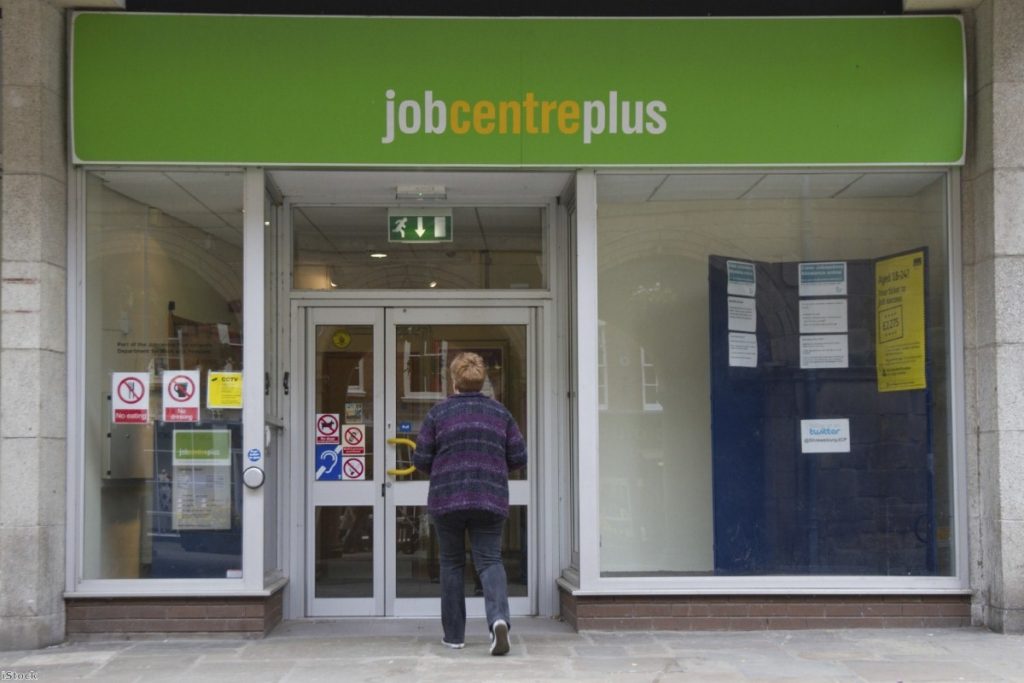Private landlords across the country are refusing to rent out properties to people who claim Universal Credit, research carried out by Politics.co.uk has revealed.
Sixty-nine per cent of estate agents contacted in areas where the new benefit has been rolled out said they had no landlords currently on their books who would accept Universal Credit claimants.
Of the 31% who did have properties available, 11% said the tenant would need to find a guarantor. In many cases this meant somebody who earned 30 times the monthly rent.
Politics.co.uk spoke to 100 estate agents in different parts of the country. In some of those areas just one in ten had any properties available to people receiving Universal Credit.


Some of the comments made by the estate agents included:
"Landlords are just not keen on it. Some that accept it see the amount of rent they receive change one month from the next."
"We get some landlords willing to take people on Universal Credit but they are few and far between."
"I don't think you'll find anyone around here who will take somebody on Universal Credit."
On a forum for landlords to discuss issues relating to their rental properties, the subject of Universal Credit is mentioned frequently. One person wrote:
"I will not take UC claimants and if any tenant goes onto UC then a section 21 [an eviction notice] is immediately issued as my business could not survive without a regular rental income."
Earlier this year, it was reported that members of the Great Yarmouth branch of the Eastern Landlords Association said they would not take on new tenants who were making a new Universal Credit claim.
The head of policy at the National Landlords Association (NLA), Chris Norris said:
"While the NLA supports the concepts behind Universal Credit, it is clearly divorced from the realities of many tenants' lives. Problems with its implementation and caps to housing benefit mean that many landlords now view letting to tenants in receipt of housing benefit or Universal Credit as high risk, because they simply do not have the confidence that rent will be paid to them on time."
The news comes as MPs today prepare to debate the rollout of Universal Credit amid increasing concerns that it could impoverish those forced to claim it.
One in five people applying for the benefit have waited longer than six weeks for their first payment and research from Citizen's Advice shows that more than half of claimants the organisation has helped have been forced to borrow money while they wait.
Labour MPs have called for the planned rollout of the programme to be paused to prevent further hardship over Christmas.
Commenting on the research carried out by Politics.co.uk, shadow work and pensions secretary Debbie Abrahams said:
"This survey highlights the real design flaws in Universal Credit. Tenants who do not receive their benefit in time to pay their rent are put at risk of eviction and homelessness. Delays mean many landlords in the private sector are now refusing tenants who are on UC – severely limiting their housing options. With half of those in rent arrears reporting that they went into debt after claiming Universal Credit, it's clear the government's flagship social security programme is failing.
"I urge Conservative MPs today to vote with their conscience and support our motion to pause the roll out of Universal Credit. The social security system is meant to protect people from debt and arrears, not exacerbate their situation."
Several reports yesterday suggested the government could be prepared to make concessions in an attempt to stave off a rebellion from its own MPs. It is thought that up to 25 Conservative backbenchers might refuse to back the rollout.
A spokesperson for the Department for Work and Pensions said:
"It's wrong to treat a claimant differently because they are on Universal Credit rather than housing benefit. Universal Credit gives people control over their finances, and paying their own rent is an important part of this – just like someone in work would do. We have worked closely with landlords to make sure the right safeguards are in place for them and their tenants. The majority of people are comfortable managing their money but advances are available for anyone who needs extra help and arrangements can be made to pay rent direct to landlords."
Natalie Bloomer is a journalist for Politics.co.uk. You can follow her on Twitter here.









